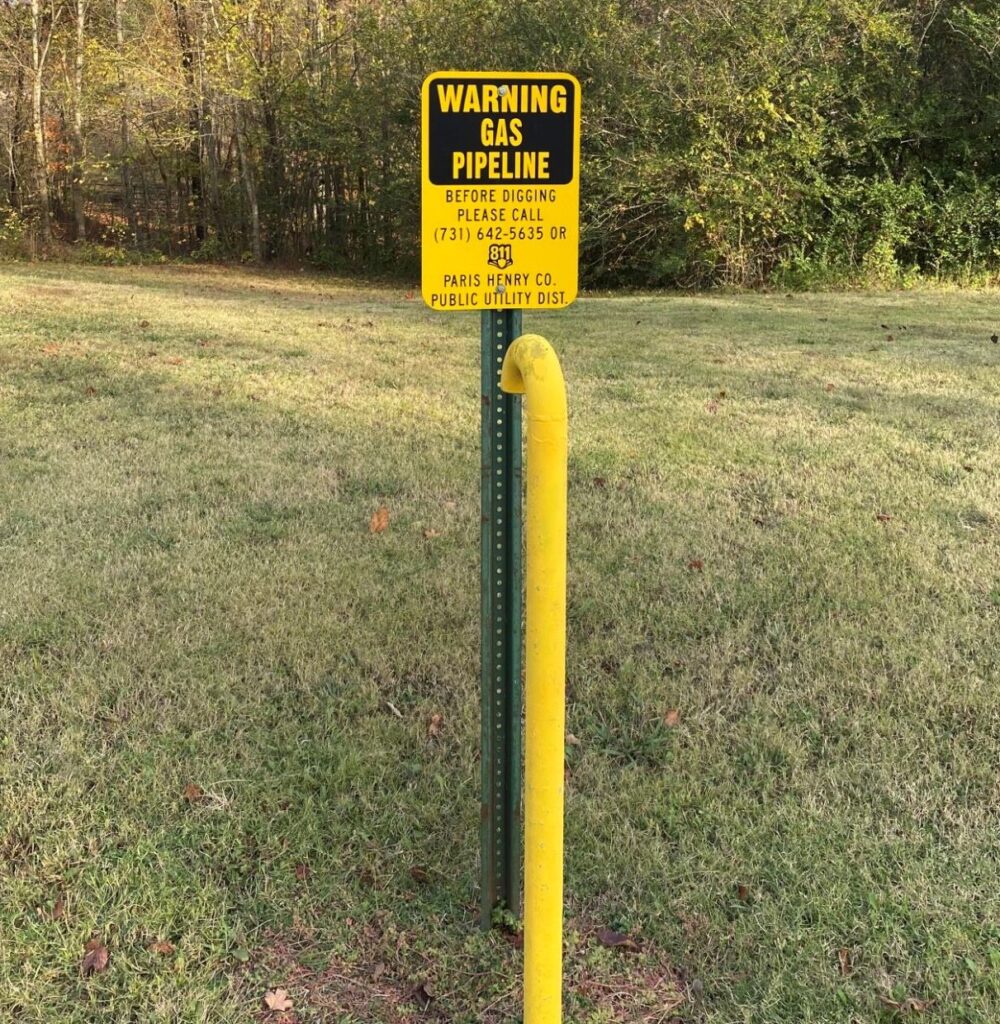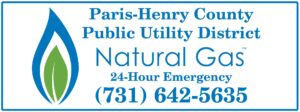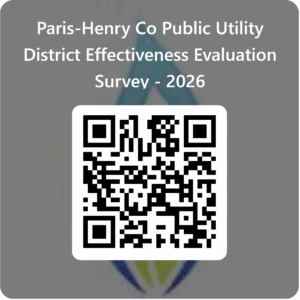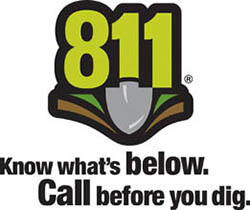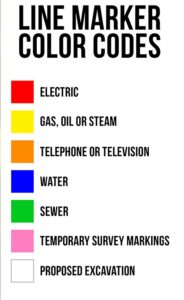Safety
Please complete our ‘Natural Gas Public Awareness Survey‘. Public awareness focuses on promoting ‘Call 811’ before you dig, recognizing and responding to gas leak signs, and understanding basic safety practices to prevent accidents. Our number one goal is to ensure our systems integrity so we can provide safe, affordable, reliable, and efficient natural gas to our community.
Snap a picture of the QR code above to complete the survey or click 2026 Public Awareness Survey
Please complete only one survey per person.
We will have GIFT CARD drawings throughout the year.
Although natural gas pipelines have an unparalleled safety record, occasionally leaks do occur. It’s important to know the signs and hazards of a natural gas leak.
IF YOU SUSPECT A NATURAL GAS LEAK?
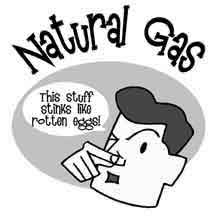
Signs of a natural gas leak may include:
- An odor of rotten eggs or sulfur-like smell.
- Roaring sound like an engine.
- White vapor that looks like smoke.
- Blowing, whistling, or hissing sounds.
- Patches of dead vegetation or grass.
- Dirt blowing from a hole in the ground.
- An area of frozen ground in the summer.
What do to if you suspect a natural gas leak:
- Leave the area immediately!
- Don’t light a match.
- Don’t start an engine.
- Don’t use a cell phone or electronic device in close proximity of a suspected leak.
- Don’t use electrical devices such as light switches, garage door openers, etc.
- Don’t try to locate or repair the source of the leak.
- Don’t try to shut off any natural gas valves or gas appliances.
- Don’t drive anything into a vapor cloud as it might explode.
- Don’t reenter the premises or the area of the leak until our employees clear the area and deem it is safe.
Under no circumstances should you ever attempt to repair, stop or fix a pipeline leak, or rupture. Trained pipeline technicians with specialized equipment and knowledge are the only individuals qualified to conduct repairs on natural gas pipelines.
Most leaks are small and not dangerous, but if a leak is suspected, always comply with the following procedures to be safe:
- Leave the area uphill or up wind of the suspected leak.
- If possible, turn off any equipment that could cause a spark.
- From a safe place, call 911.
- Call us at (731) 642-5635 and be sure to tell us where you are so you can let us into your house or business when we arrive.
- Warn others of a potential leak and stay there until emergency responders arrive.
If you suspect a natural gas leak call Paris-Henry County Public Utility District immediately at (731) 642-5635 from your neighbor’s house or another location away from the leak.
Hazards to be aware of:
- Gas leaks are highly flammable and easily ignitable.
- Gas leaks displace oxygen and cause asphyxiation.
- Natural Gas fires may produce irritating and corrosive vapors.
- Vapors may cause dizziness.
Call 811 – It’s the LAW, It’s Easy, and It’s FREE!
811 is a one-call system that protects you and your community by notifying all the utilities to mark their underground utility lines before you dig. Hitting a buried line while digging can disrupt utility service, cost money to repair, or cause serious injury or death.
Call 811 – or – visit www.tenn811.com
STEPS TO TAKE:
- Use WHITE PAINT to mark where you plan to dig, it’s the law.
- Contact 811.
- You must wait THREE BUSINESS DAYS for your lines to be marked.
- Natural Gas lines are marked in YELLOW.
It is Paris-Henry County Public Utility District’s (PHCPUD) priority to educate our community regarding Carbon Monoxide Safety.
PHCPUD recommends that you use a Carbon Monoxide Detector with a DIGITAL readout, that is listed by a qualified testing laboratory, for quicker detection of potential issues in your home or business.
Per the National Fire Protection Association, www.nfpa.org:
Often called the invisible killer, carbon monoxide is an invisible, odorless, colorless gas created when fuels (such as gasoline, wood, coal, natural gas, propane, oil, and methane) burn incompletely. In the home, heating and cooking equipment that burn fuel can be sources of carbon monoxide.
- CO alarms should be installed in a central location outside each sleeping area and on every level of the home and in other locations where required by applicable laws, codes or standards. For the best protection, interconnect all CO alarms throughout the home. When one sounds, they all sound.
- Follow the manufacturer’s instructions for placement and mounting height.
- Choose a CO alarm that is listed by a qualified testing laboratory.
- If you CO alarm sounds, contact PHCPUD’s 24-Hour Emergency Contact at (731) 642-5635.
- Test CO alarms at least once a month; replace them according to the manufacturer’s instructions.
- If the audible trouble signal sounds, check for low batteries. If the battery is low, replace it. If it still sounds, call PHCPUD’s 24-Hour Emergency Contact at (731) 642-5635 or 911.
- If the CO alarm sounds, immediately move to a fresh air location outdoors or by an open window or door. Make sure everyone inside the home is accounted for. Call for help from a fresh air location and stay there until emergency personnel declare that it is safe to re-enter the home.
- If you need to warm a vehicle, remove it from the garage immediately after starting it. Do not run a vehicle or other fueled engine or motor indoors, even if garage doors are open. Make sure the exhaust pipe of a running vehicle is not covered with snow.
- During and after a snowstorm, make sure vents for the dryer, furnace, stove, and fireplace are clear of snow build-up.
- A generator should be used in a well-ventilated location outdoors away from windows, doors and vent openings.
- Gas or charcoal grills can produce CO — only use outside.
FACTS:
- A person can be poisoned by a small amount of CO over a longer period of time or by a large amount of CO over a shorter amount of time.
- In 2010, U.S. fire departments responded to an estimated 80,100 non-fire CO incidents in which carbon monoxide was found, or an average of nine calls per hour.
- HOME HEATING EQUIPMENT: Have fuel-burning heating equipment and chimneys inspected by a professional every year before cold weather sets in. When using a fireplace, open the flue for adequate ventilation. Never use your oven to heat your home.
Pipeline markers display the material transported in the line, the name of the pipeline operator, and the telephone number where the operator can be reached in the event of an emergency. Markers only indicate the general location of a pipeline and cannot be relied upon to indicate the exact position or depth.
